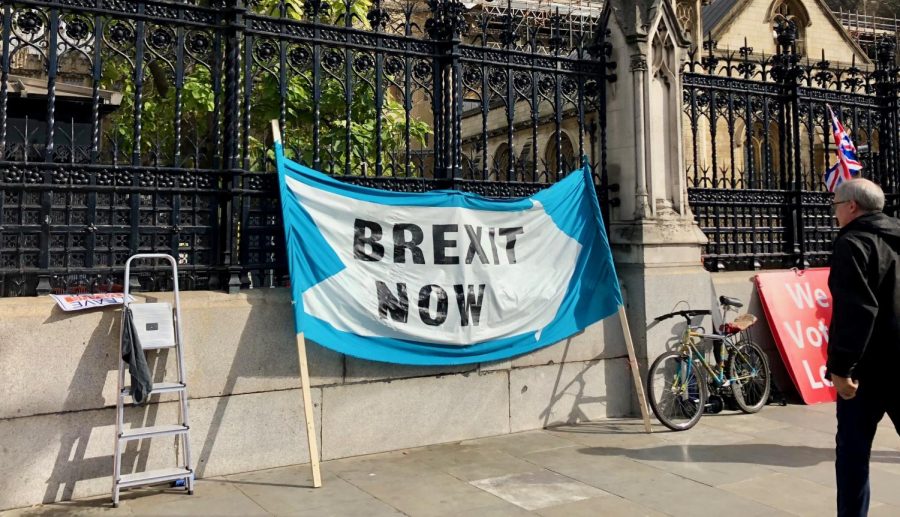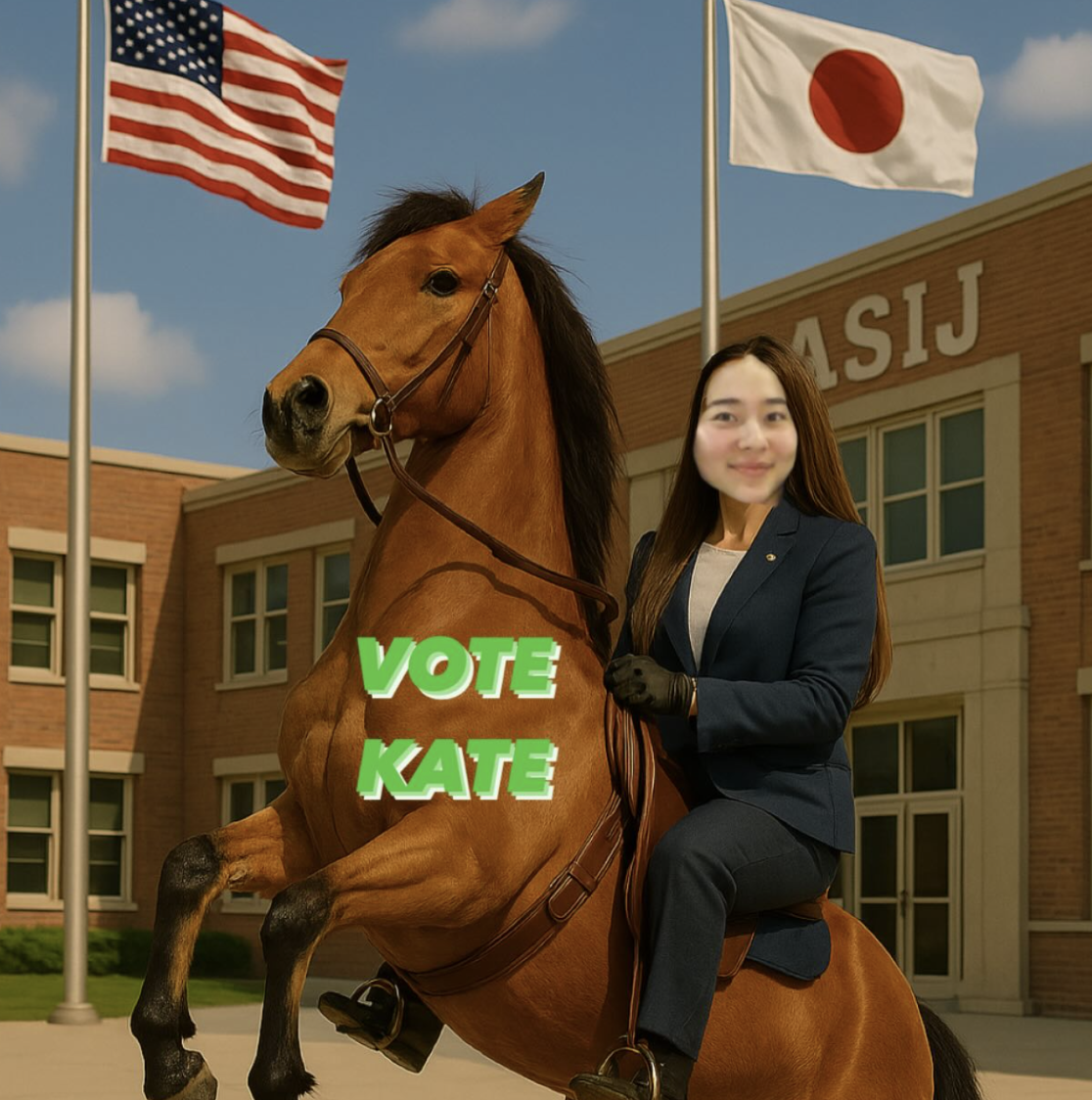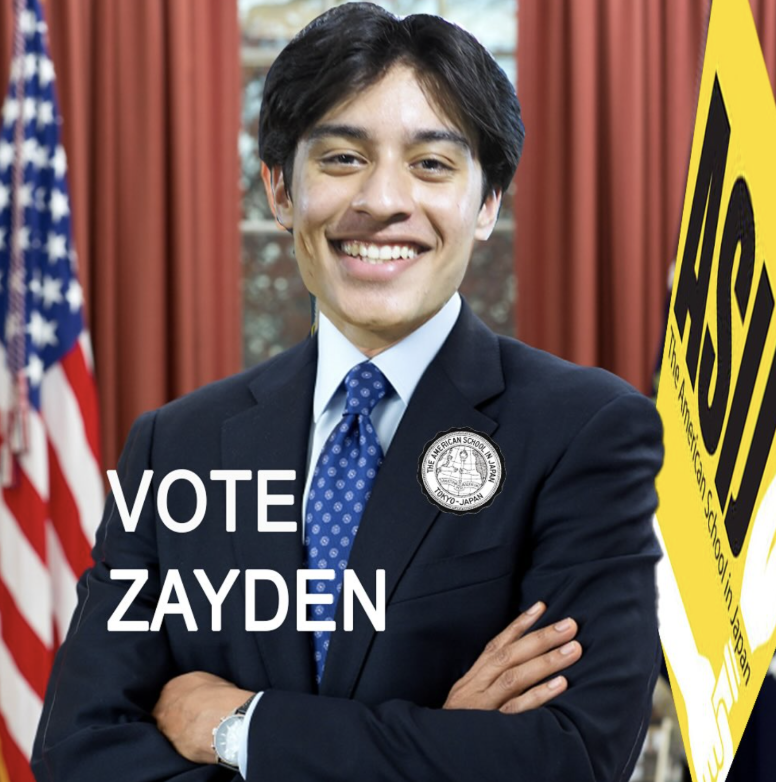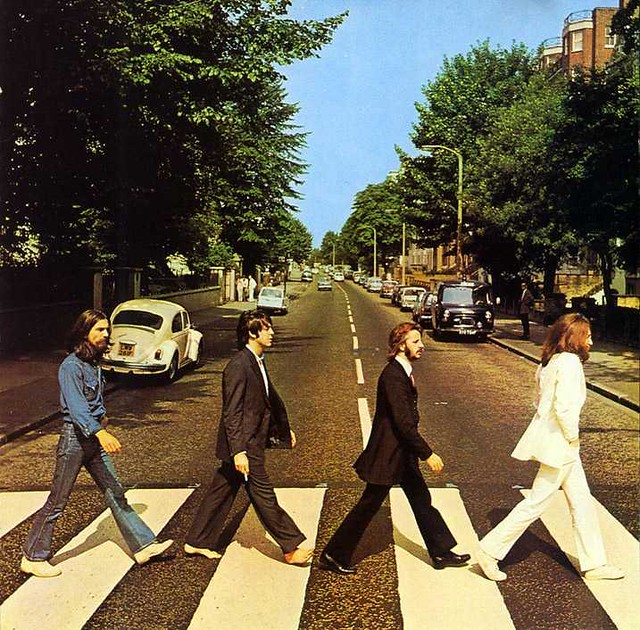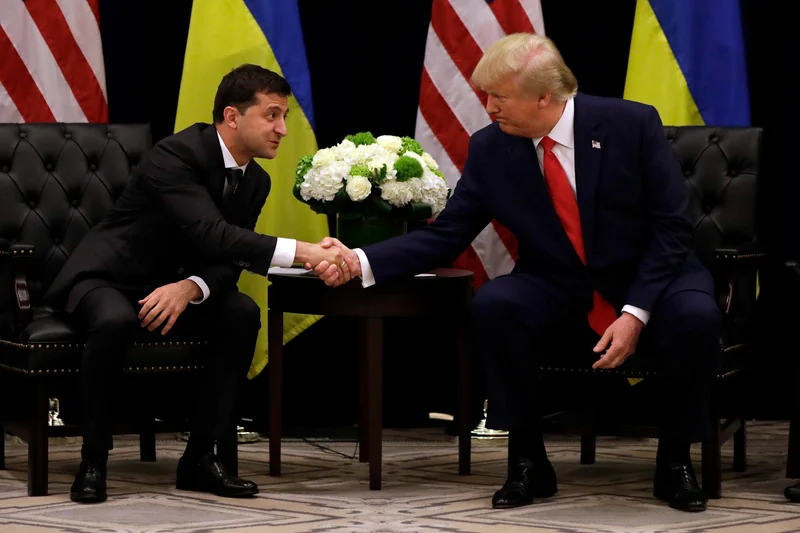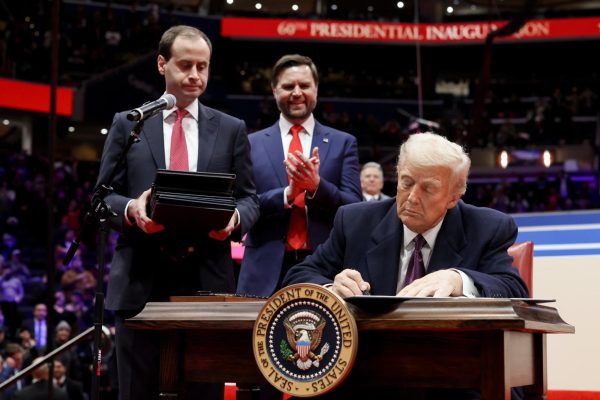Final Hours: Brexit and the UK’s Parliamentary Crisis Explained
Photo by Sylvan Lebrun
October 12, 2019
On the final day of October, the UK is scheduled to leave the European Union, after three years of fruitless negotiations. Following the result of the “Brexit” referendum in June 2016, where the public narrowly voted to leave the EU by 52%, it was assumed by pro-Brexit politicians that a deal could be struck for a clean exit. However, the issue only became more contested after the referendum, as the possibility of a catastrophic “No Deal” scenario began to loom larger. Now, only weeks before the deadline for either a reversal or a deal, Britain’s future is still unclear.
The past few months, headlines in the UK have been dominated by changing prime ministers, Supreme Court rulings, calls for general elections, and heated debates in Parliament and on the streets. Recent events concerning Britain’s upcoming exit from the EU have confused and shocked many across the globe who are not familiar with the institutions of British politics. As the nation approaches this crucial deadline, it is important to understand what a No Deal Brexit would mean, and why this conflict has remained unresolved for years.
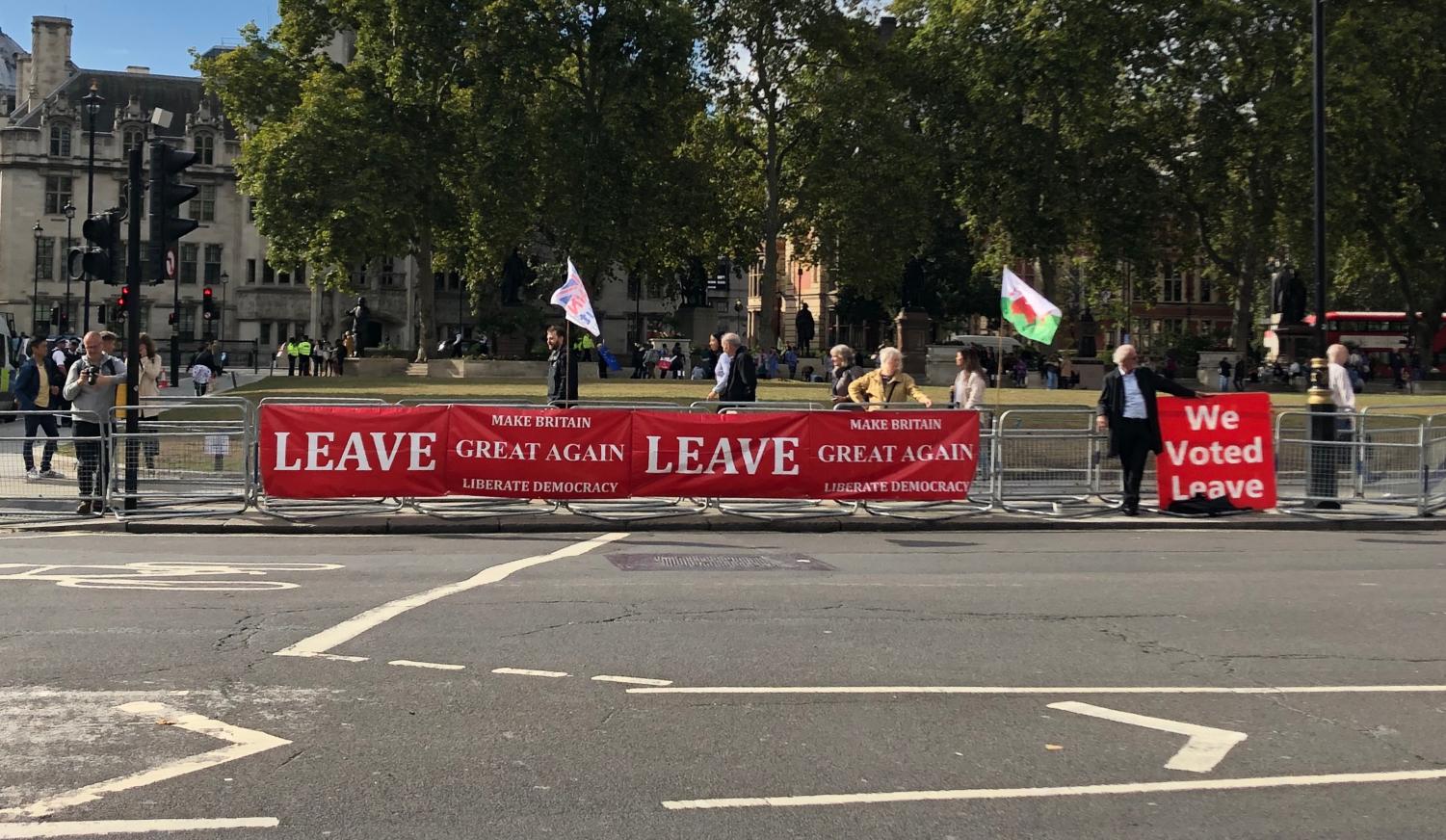
After the result of the 2016 referendum marked a win for “Leave” campaigners, it took almost a year of bureaucratic dealings for the official process to begin. On March 29, 2017, former Prime Minister Theresa May invoked “Article 50,” a section of the Treaty on European Union that allots for possible withdrawal of a nation. After this official declaration, May and other lawmakers began to propose a number of withdrawal agreements that, according to the BBC, would cover issues such as citizenship rights, border checks, and tariffs. For a formal deal for withdrawal to be put into place, the conditions needed to be approved by both the prime minister and the EU, and then pass through Parliament with a majority of the votes. A plan was agreed upon by both the EU and the UK in November 2018, but was rejected three times by Parliament, leading to the exit date being delayed again and again.
One major issue dominating debates is a “backstop” being added to the deal terms that would allow free trade to continue between Northern Ireland (a part of the UK) and the Republic of Ireland. Currently, there are no trade posts or checks at the border between the two regions, and a backstop would sustain this open border even after Britain leaves the EU. Lawmakers cannot agree on this issue, with some believing that Northern Ireland should not be given a special status and should be treated as a separate country in all trade-related matters, while others think that border posts and other enforced separations would reignite the historical conflicts in the area.
However, points of contention such as this must be resolved if the UK is to avoid a No Deal scenario. According to the UK’s Office for Budget Responsibility, a No Deal Brexit will likely cause a recession, disrupting European trade and causing food prices to skyrocket. A dissenting Conservative MP said to CNN that “it would be the first time in modern history that a country has imposed sanctions on itself.” In addition, complications regarding the newly controlled borders would lead to traffic at major ports, while adjustments to regulatory frameworks could cut off supply chains for pharmaceuticals, according to TIME Magazine.
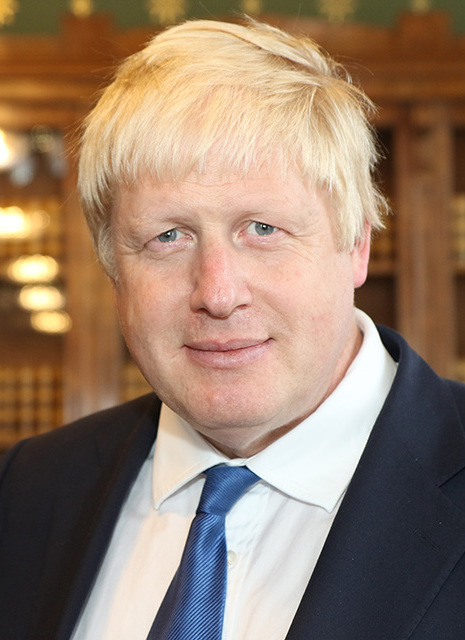
Current Prime Minister Boris Johnson has claimed that the UK will leave the EU on the anticipated date “come what may, do or die.” Meanwhile, MPs (Members of Parliament) of opposition parties are employing a number of methods to avoid a No Deal exit, putting forth legislation to delay the deadline. According to CNN, a bill that would force an extension in the case of a No Deal situation was passed with royal assent on September 9; however, Boris Johnson has not yet affirmed that he would comply.
This conflict between Parliament and Boris Johnson has grown increasingly ugly in recent weeks. Boris Johnson has twice attempted to call for a general election to regain a strong majority. After the attempts were shut down, he resorted to a process known as “prorogation,” the forcible suspension of Parliament for a specific period of time, a power that rests with the ruling monarch. However, a precedent in British politics is that the monarch almost always respects the will of the prime minister. Therefore, when Johnson advised the queen to use prorogation to suspend Parliament from 10 September to 14 October, his request was granted.
Though prorogation is a legal fixture of the British government, the undemocratic timing and intent caused Johnson’s move to be challenged and then declared void in Britain’s Supreme Court—a major loss for him and his supporters. Public pressure for his resignation has increased to a fever pitch in the wake of the decision.
Parliament will now “reconvene without delay,” according to the Speaker of the House of Commons John Bercow; but is there any chance that a functioning withdrawal agreement can be struck and passed within the little time remaining? With Johnson as prime minister, alterations to the exit plan have been proposed, yet according to political writer Sebastian Payne, “his team has yet to come up with serious proposals beyond vague platitudes.” As the days before the deadline pass, it appears more unlikely that a deal will take hold. Nevertheless, Johnson still holds strong in his will to take Britain out of the EU at the end of the month.
When one looks at the significant consequences, it may seem confusing as to why Boris Johnson would possibly take a No Deal Brexit as an acceptable option. However, the factor motivating Johnson is a perceived duty to his Conservative party, which has established itself as the “party of Brexit.” According to CNN, public pressure from the Conservatives has led Johnson to believe that he will lose the support of his party in the case that the UK does not leave the EU on the scheduled date.
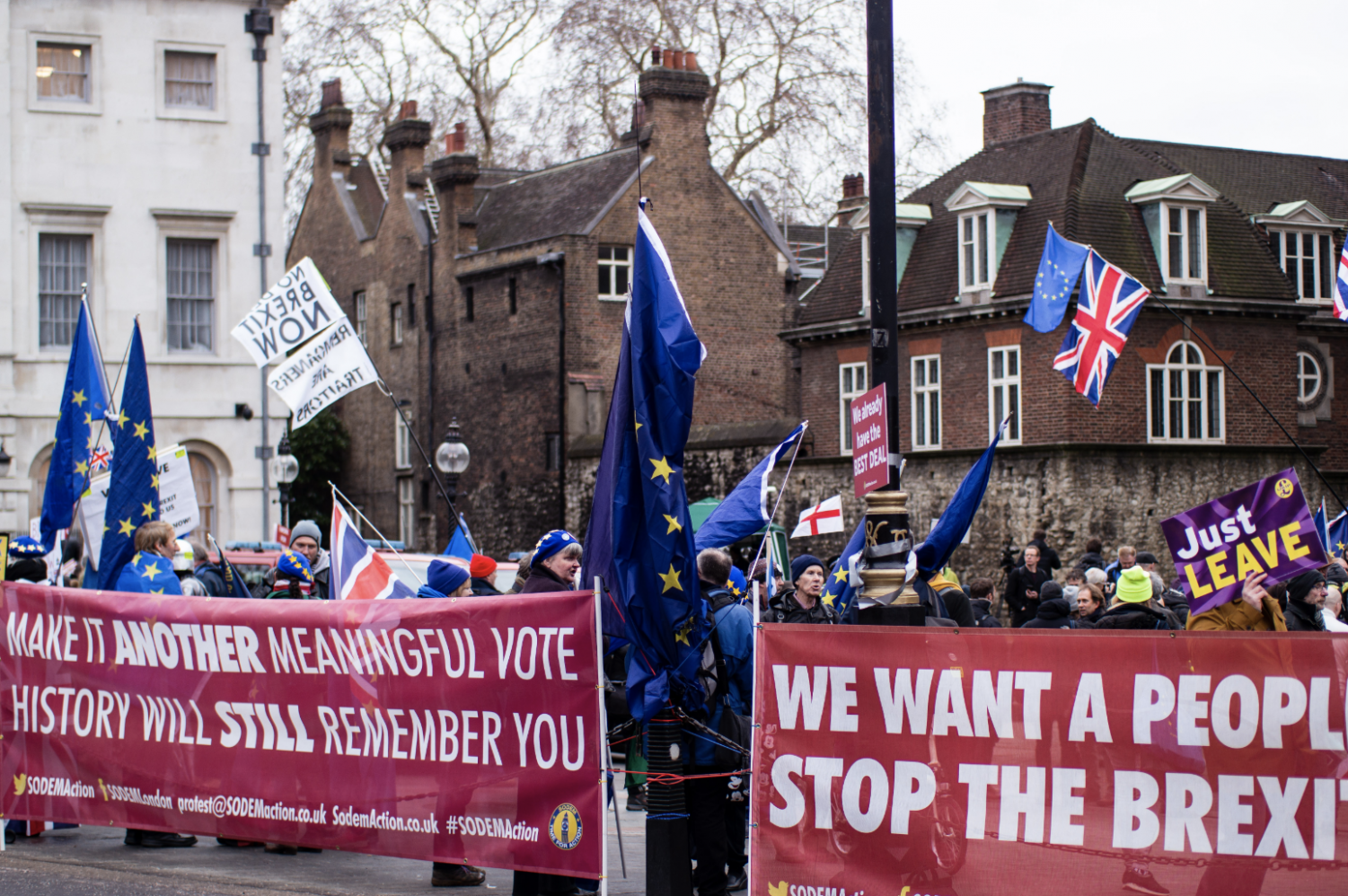
On the October 31 deadline, there are a number of possible outcomes. A deal could be struck, a delay could be given, or the UK could exit without a deal and plunge into an economic downturn. In any case, this current conflict between Boris Johnson and Parliament raises important questions about democracy and the balance of power that should be considered by all nations going forward. Politicians need to decide where the line is between being loyal to one’s party and one’s nation.

